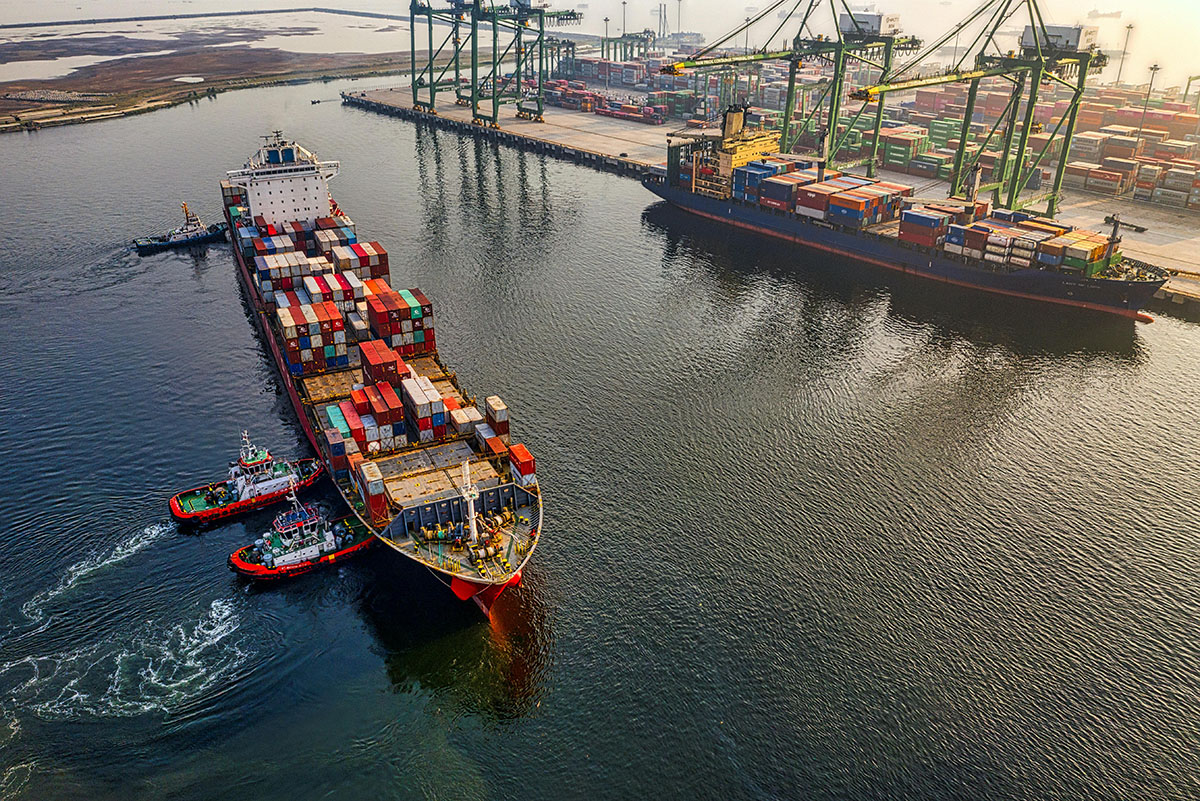What are Ocean Freight Solutions?
Expanding into international markets can feel overwhelming for small businesses, especially when it comes to ocean freight. Shipping goods overseas isn’t just about moving products from one place to another, it’s about finding the right solutions that fit your business’s unique needs and budget. The right ocean freight partner can simplify the process, making global trade more accessible and cost-effective.
As you embark on your journey into ocean freight, it’s essential to understand how these logistics work. Whether you’re looking at Less Than Container Load (LCL) options or seeking ways to streamline your shipping process, personalized solutions are available. Join us as we explore the challenges faced by small businesses in this arena and discover how savvy choices can lead to smoother sailing ahead.
Challenges Faced by Small Businesses in Shipping Goods Overseas
Shipping goods overseas can be a daunting task for small businesses. Limited resources often mean that these companies lack the expertise needed to navigate complex logistics. Customs regulations present another hurdle. Each country has its own rules, and keeping up with them can feel overwhelming. Missteps can lead to costly delays.
Then there’s the issue of costs. Ocean freight rates fluctuate frequently, making it tough for small business owners to budget effectively. Unexpected fees can eat into profits fast. Less Than Container Load (LCL) options might seem like a solution, but they come with their own challenges—like longer transit times and potential damage during handling.
Communication barriers also complicate international shipping efforts. Language differences can result in misunderstandings about delivery schedules or product specifications, causing frustration on all sides. Small businesses must find ways to overcome these obstacles if they wish to thrive globally.
Understanding the Costs of Shipping Freight via Ocean
Shipping freight via ocean can be a cost-effective option for small businesses, but understanding the associated costs is crucial.
Several factors influence shipping expenses. The size and weight of your cargo play significant roles in determining rates. For smaller shipments, Less Than Container Load (LCL) options are available, allowing you to share container space with other shippers.
Additionally, destination ports can impact pricing. Some locations have higher handling fees or customs charges that may surprise newcomers to international trade. Don’t forget about fuel surcharges and insurance costs; these often add up quickly. Seasonal demand fluctuations might also lead to increased freight rates during peak times.
Consider any additional services required, such as packing or warehousing. Each element contributes to the overall expense of ocean freight shipping and must be evaluated carefully for budget planning.
The Differences Between a Freight Broker and an Import Broker
Freight brokers and import brokers play distinct roles in the shipping industry. A freight broker is a middleman between shippers and carriers. They facilitate the transportation of goods by securing space on ships for their clients. On the other hand, an import broker specializes in clearing goods through customs. They ensure compliance with regulations and manage paperwork related to imports.
While both types of brokers streamline processes, their expertise differs significantly. Freight brokers are focused on logistics, whereas import brokers handle legalities and documentation after arrival at the destination port. Generally, a freight broker will have relationships with import brokers and can help shippers with these complexities. For small businesses navigating ocean freight, understanding these differences can save time and money. Choosing the right type of broker based on your needs helps optimize your shipping strategy effectively.
How to Choose the Right Ocean Freight Solution for Your Small Business
Choosing the right ocean freight solution for your small business can feel overwhelming. Start by assessing your shipping needs. Consider the size and weight of your cargo, as well as how often you need to ship. Next, evaluate whether you prefer Full Container Load (FCL) or Less Than Container Load (LCL). FCL is ideal for larger shipments, while LCL allows you to share container space with other businesses, saving costs on smaller loads.
Don’t forget about transit times. Different carriers offer various schedules that might affect how quickly your goods arrive at their destination. Research potential freight forwarders too. Look for those experienced in handling shipments similar to yours, ensuring they understand specific regulations and requirements. Consider customer support options available through each provider. Reliable communication can greatly enhance the shipping experience when unexpected issues arise.
How Freight Brokers Can Help Simplify Ocean Freight Shipping
Freight brokers play a crucial role in the ocean freight shipping process. They act as intermediaries between shippers and carriers, offering expertise that can save time and reduce stress for small business owners. Freight brokers simplify the complexities of international shipping by providing tailored solutions based on specific needs. Their extensive network allows access to various carriers, ensuring competitive rates.
Additionally, they handle documentation and compliance requirements, which often confuse newcomers to maritime trade. This frees up valuable time for business owners to focus on growth rather than paperwork. Brokers also offer insights into market trends and capacity issues. With their advice, businesses can make informed decisions about shipping schedules and routes that align with budget constraints. By leveraging the services of a freight broker, small businesses gain more control over logistics while minimizing potential headaches associated with ocean freight shipments.
The Future of Personalized Ocean Freight Solutions for Small Businesses
As small businesses continue to expand globally, the demand for personalized ocean freight solutions is rising. Technology plays a crucial role in this evolution. Advanced tracking systems and AI-driven logistics are making it easier than ever to customize shipping routes based on specific needs. Moreover, sustainability is becoming a significant focus. Eco-friendly shipping practices will likely gain traction as consumers increasingly support environmentally conscious brands. Small businesses can leverage these trends by opting for greener freight options that resonate with their customer base.
Collaboration between shippers and freight brokers will also shape the future landscape. These partnerships can lead to tailored services that address unique challenges faced by smaller companies, such as LCL shipping. With ongoing innovations in digital platforms, tracking shipments could become more user-friendly and transparent, ensuring small businesses stay informed every step of the way.
Moving Forward
Finding the right ocean freight solutions is essential for small businesses looking to expand their reach. The complexities of international shipping can be daunting, especially when managing costs and logistics. However, personalized options like LCL services have emerged as a game-changer. Small businesses no longer need to feel overwhelmed by shipping processes. With strategic partnerships with freight brokers or import brokers, they gain access to expertise that simplifies operations. This way, business owners can focus on what they do best: growing their companies.
As technology evolves, so too will the offerings in ocean freight solutions. The future promises even more tailored services that cater specifically to the unique needs of small enterprises. Embracing these changes means staying ahead in a competitive market.
The world of ocean freight doesn’t have to be complicated and TOP Worldwide is here to help. With customized shipping solutions designed for small businesses, we make international trade seamless, cost-effective, and stress-free. Whether you need reliable transit times, competitive rates, or end-to-end logistics support, our team is ready to optimize your supply chain. Partner with TOP Worldwide today with ocean freight solutions that move your business forward.
 Jeff Berlin
Jeff Berlin
is the Chief Operating Officer of E.L. Hollingsworth & Co. and serves as the Senior Operations Executive for TOP Worldwide and Native American Logistics. With over 30 years of experience leading logistics and trucking companies, he brings deep industry expertise to his role. Jeff is also a CDL-A driver and a private pilot. Contact Jeff at jberlin@elhc.net.


